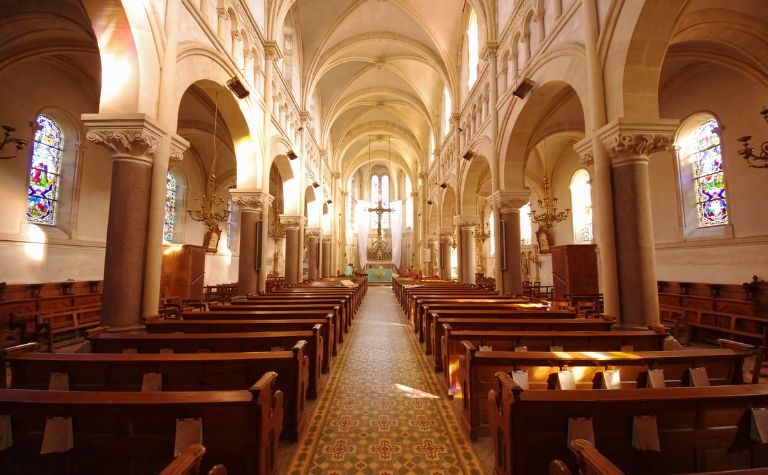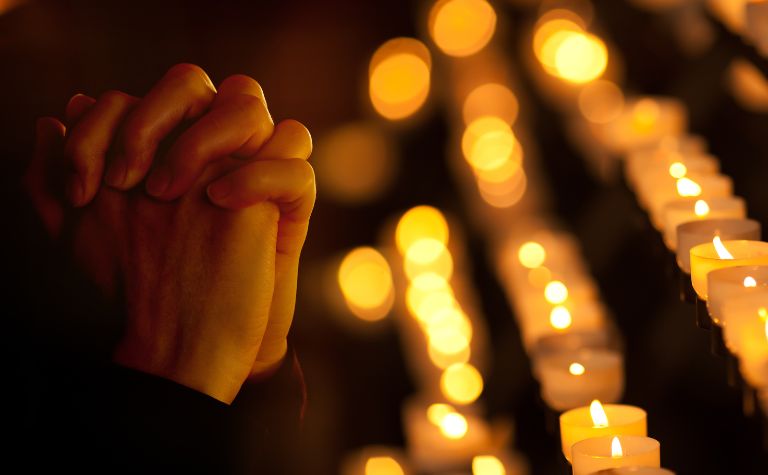Easter Sunday is an important springtime event worldwide that transcends time and culture. Some people spend months preparing for the special day and may spend a week or more celebrating it. However, not all religions celebrate Easter because not all recognize the event it commemorates. Those unfamiliar with Easter may wonder whether the Roman Catholic Church celebrates it.
Roman Catholics celebrate Easter because the event it recalls, the resurrection of Jesus Christ, is central to their faith. Moreover, Easter is the most important day of the Catholic year, just as it has been for other Christians since the time of Christ. Catholicism wouldn’t exist without Easter.
When do Catholics celebrate Easter? Why does the date change every year? How do they prepare for observing Easter? What are Ash Wednesday, Maundy Thursday, and Good Friday important? What do Catholics do on Easter Sunday? Keep reading to learn the answers to these questions and others.
Also, the Gospels in the New Testament describe Jesus’ resurrection from the dead. Learn a summary of the Easter story and why it’s important to many Christians.

When do Catholics celebrate Easter and why?
Like other historical branches of the Christian faith, the Roman Catholic Church teaches that Jesus of Nazareth rose from the dead three days after he died on the cross (e.g., Matt. 28:1-10). Because Jesus loves sinners (John 3:16), he took the consequence for their sin, death (Rom. 6:23), exchanging his life for theirs (1 Tim. 2:6).
The resurrection demonstrates Jesus’ victory over sin and death (1 Cor. 15:55), which is why the Apostle Paul said without it, Christianity is worthless (1 Cor. 15:17).
Why is Easter in the Spring? Jesus died and rose from the dead during Passover, a Jewish springtime festival commemorating God rescuing the Israelites from slavery in Egypt. The New Testament presents Jesus as the ultimate Passover lamb (John 1:29; 1 Cor. 5:7) whose sacrifice atones for people’s sin. Jesus’ death and resurrection fulfill the Law, ends the sacrificial system, and enable salvation.
Why does the date for Easter change? Easter Sunday falls on a different day each year. The date is the first Sunday after the first paschal (i.e., “passover”) full moon (14 Nisan on the Jewish calendar) on or after March 21, which is the Spring Equinox in the northern hemisphere on the Gregorian calendar.
| 14 Nisan | Easter Sunday |
|---|---|
| Wednesday, April 5, 2023 | Sunday, April 9, 2023 |
| Monday, April 22, 2024 | Sunday, March 31, 2024 |
| Saturday, April 12, 2025 | Sunday, April 20, 2025 |
| Wednesday, April 1, 2026 | Sunday, April 5, 2026 |
| Wednesday, April 21, 2027 | Sunday, March 28, 2027 |
| Friday, April 14, 2028 | Sunday, April 16, 2028 |
| March 30, 2029 | Sunday, April 1, 2029 |
| Wednesday, April 17, 2030 | Sunday, April 21, 2030 |
This formula for determining Passover, and therefore Easer, is based on the Jewish lunar calendar, where dates fluctuate. Protestant Christians also decide the date for Easter Sunday according to this formula.
When did the church determine the date for Easter? The first followers of Jesus celebrated Easter, as have all Christians since the first century. However, some in the early church didn’t agree on the proper date for the commemoration. To resolve the dispute and encourage church-wide unity, the Council of Nicaea decided on the date (described above) in 325 A.D.
Also, some people incorporate the Easter Bunny into their celebration of the holiday. Discover the spiritual meaning of Easter and why the Bible says it’s important.

How do Catholics prepare for Easter?
Though Easter is one day, the church’s observance lasts much longer. Preparation for the special Sunday can begin two months in advance as clergy, congregations, and parishioners undertake specific disciplines and customs that help ensure they maximize their commemoration of the day.
What is Ash Wednesday? Ash Wednesday occurs 40 days before Easter and marks the beginning of Lent. The name reflects the day of the week the event occurs and the practice of clergy marking the forehead of participants with ash in the shape of a cross. Ash represents contrition and repentance, which are essential to preparing spiritually for Easter Sunday in the Catholic tradition.
What is Lent? From the Latin word for “spring,” Lent describes the 40 days before Easter that starts on Ash Wednesday. Lent is important for Catholics to prepare for Good Friday and Easter because it’s a time of penitence. “Penitence,” from the Latin word for repentance, signifies feelings of contrition and remorse for sin, exposing and magnifying an individual’s need for forgiveness and a Savior.
What is Palm Sunday? Palm Sunday, also called Passion Sunday, takes place one week before Easter. It recalls Jesus’ arrival in Jerusalem on a donkey, a royal animal in the first century, reflecting his identity as King of Kings (Matt. 21:1-11). In addition, Palm Sunday marks the beginning of Holy Week.
What is Holy Week? Holy Week is the last seven days of Lent and commemorates the last week of Jesus’ earthly life (e.g., Mark, Ch. 11-16). it includes “Holy Thursday,” also called “Maundy Thursday,” as maundy comes from a Latin word meaning “mandate” or “commandment.” The day recalls Jesus’ teaching on serving and loving others (John 13:1-20).
What is Good Friday? Friday of Holy Week is when Catholics recall the crucifixion of Jesus (e.g., John 19:16-37). The word “Good” refers to the holiness of the day. Good Friday is important to Catholics. Many worldwide set aside the entire day for church attendance, prayer, Scripture reading, and other activities that help them recall the meaning of Jesus’ sacrificial death for sin.
What is the Easter Vigil? In the Catholic church, the Easter Vigil occurs on “Holy Saturday Night,” the evening before Easter Sunday. An Easter Vigil service or mass includes Scripture readings, the Eucharist, and baptisms. Also called the Paschal Vigil, this Saturday night service dates to the second century after Christ.
Also, some people include the Easter Bunny in their observance of the resurrection. To separate fact from fiction, learn the facts about Easter and why they matter so much.

How do Catholics celebrate Easter?
The Lenten season, and all its holy days, led people to express sorrow for their sin, which Jesus atoned for with his death. Sin and death weren’t ultimately victorious over Jesus because he rose from the dead, eternally conquering and triumphing over them.
Easter Sunday in Catholic churches is a time for joyful celebration. Jesus’ victory calls for people to praise him and celebrate the good news.
Services on Easter Sunday look different worldwide, even though they are all celebrating Jesus’ resurrection. For example, some churches hold sunrise services to mark the exact time of day when people like Mary Magdalene discovered that Jesus’ tomb was empty (John 20:10-18).
All services include Scripture readings of the Gospel’s narratives about the empty tomb and the risen Jesus appearing to people (e.g., John 20:24-29). Common elements of regular Catholic services are also including like singing and prayer.
After services, family and friends often gather in each other’s homes for food and fellowship.
Matthew 28:5-7 reads, “The angel answered and said unto the women, Fear not ye: for I know that ye seek Jesus, which was crucified. He is not here: for he is risen, as he said. Come, see the place where the Lord lay. And go quickly, and tell his disciples that he is risen from the dead; and, behold, he goeth before you into Galilee; there shall ye see him: lo, I have told you.”
Also, many people are confused about the Easter Bunny’s purpose. Discover what the Easter Bunny has to do with Jesus Christ to learn more about their connection.
References:
[1] Source
[2] Source
Related Questions
Easter is the most important day on the Christian calendar because, as Paul told the Corinthians, if Jesus Christ didn't rise from the dead, then his followers' faith is worthless (1 Cor. 15:17)....
Easter is one of the most important dates on the Christian calendar. It's important because it's the annual day that believers gather in churches to celebrate the resurrection of Jesus Christ from...
